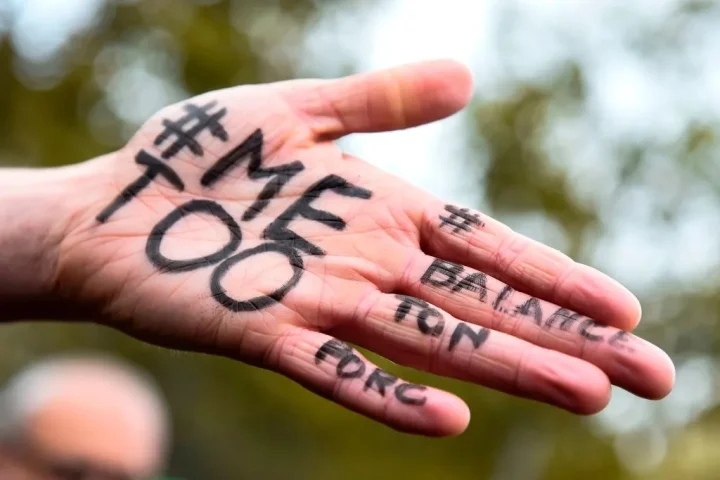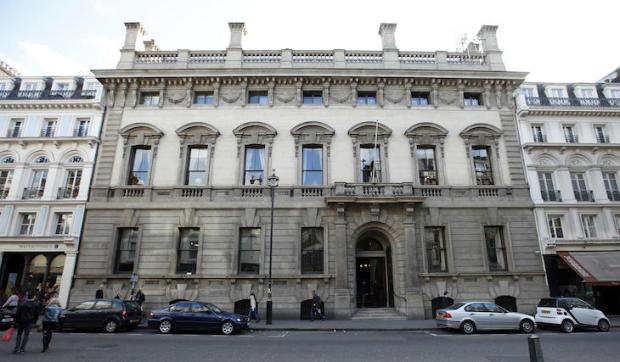In febrile times, politicians tend to have a touching belief in their ability to pass laws and make men good. The well-meaning, but actually slightly sinister, Protection from Sex-based Harassment in Public Bill, which went through its committee stage yesterday with full support from Labour and no dissenting voices, is a case in point.
The proposed legislation is a private member’s Bill brought by Greg Clark, Conservative MP for Tunbridge Wells, but it is broadly supported by the government. At first sight it does very little. It has long been a crime under the Public Order Act to intentionally cause someone harassment, alarm or distress by saying or doing anything threatening, abusive or insulting. This can clearly stretch to covering sexual harassment. Currently, however, the offence is summary, carrying a sentence of six months in prison or an unlimited fine. The new Bill would raise the penalty to two years, and allow it to be tried in a criminal court, if committed because of the other person’s sex (even if not for sexual gratification).
Most disconcertingly, there are clear indications that for supporters of the Bill it does not go far enough
There is no doubt that the measure is well-meant. Feral youths throughout the kingdom regularly cause women misery with everything ranging from catcalls to actual pawing; street jostling and propositioning in car parks remain real hazards too. Support for the Bill is also politically very unproblematic. Anything that can be presented as likely to stop this harassment fits perfectly with both the decency and law-and-order line of the right, and the equality rhetoric of the left.
Nevertheless, we still need to think about this Bill carefully. On a closer look it looks less and less appealing.
For one thing, whatever it does for the self-esteem of MPs, it is doubtful whether it will greatly help the victims. Casually slapping a woman on the bottom or pawing her (examples mentioned at the committee stage debate) already carry a potential six months’ jail time; if the assault is indecent, this rises to ten years.
There is admittedly too much of this about. But the idea that the reason yobs habitually behave this way is because of the inadequacy of penalties available if they are caught seems implausible. Just as implausible is the notion that increasing that penalty would somehow change either this sort of conduct or the culture that causes it (which is what both Stella Creasey, and also Caroline Nokes of the Conservatives, rightly want to do).
If one really wanted to change the culture of sexual hooliganism, one might look more closely at other ideas that perhaps come less readily to lawmakers. One could promote the idea that sexual relations should be the result of wooing rather than aggression, for example, or that society should have more to say about sex than simply all that really matters is consent. But enough of that.
Secondly, the idea of singling out certain groups for special protection (public order offences aggravated by racial or religious motives already carry a higher punishment, and this proposal essentially just adds sex to the list) is itself suspect. Everyone should be entitled to freedom from assault. The person jostled or slapped because she looks posh, or supports the wrong team, deserves no less protection from the criminal law – and, perhaps more importantly, no less priority from the police or community support officers – than a crime victim similarly mistreated because of their sex or race.
Thirdly, it has to be remembered that the Public Order Act covers not only acts but speech. Even if we accept that physical interferences might need heavier penalties, doing the same for mere words seems like overkill. Is it proportionate to make lewd propositioning on the street or a drunken advance in a nightclub (or, for that matter, repeated shouts to the unhappy man in the corner of the bar of ‘Hello gorgeous’ from someone at a hen party) an offence carrying a potential two years inside?
Unfortunately, this seems to be exactly what at least some of the Bill’s promoters do want. Stella Creasey certainly thought that raising the stakes on speech was absolutely right, since there was just as much need to suppress inappropriate jokes or banter as there was with more physical assaults, because ‘oddly enough, the person who starts by following women down the street does not usually stop there’. But is this really so? We should be distinctly worried about attempts of this kind not only to criminalise speech but to increase the penalties on those who speak out of turn.
Perhaps most disconcerting of all, however, there are clear indications that for those supporting the Bill, the problem is not overkill but, contrarily, that it does not go far enough.
Currently we have one consolation: for all its defects it only affects those intentionally causing harassment, alarm or distress (though ‘intention’ carries a fairly wide legal meaning, including not only a desire to cause those consequences but a knowledge that they will very probably result). But in committee there were suggestions the government might want to extend its effect to cases where a person merely ought to have contemplated these results.
One amendment, withdrawn because it was so radical as to be ruled out of scope, would have gone much further, creating a whole new offence of engaging in any (fairly loosely-defined) ‘unwanted conduct of a sexual nature’, including ‘any behaviour, action or gesture, whether verbal, non-verbal or physical or any combination thereof’, where the person was aware that any risk existed of harassment, alarm or distress. We may not have heard the last of either of these ideas when the Bill reaches report stage. Both are distinctly concerning for anyone who thinks the criminal law should be carefully constrained.
Any decent person believes in women’s equality and in protecting women and girls from yobbery, whether on a Saturday night in Scunthorpe or on a Wednesday morning in Wimbledon. But even here we need to be careful what we wish for. This Bill needs watching carefully. It is unsettling enough as it is: but if we are not careful, the eventual cure we get could be a great deal worse than the disease we started with.
Got something to add? Join the discussion and comment below.
Get 10 issues for just $10
Subscribe to The Spectator Australia today for the next 10 magazine issues, plus full online access, for just $10.




















Comments
Don't miss out
Join the conversation with other Spectator Australia readers. Subscribe to leave a comment.
SUBSCRIBEAlready a subscriber? Log in